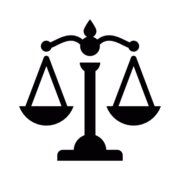Best Collaborative Law Lawyers in Arezzo
Share your needs with us, get contacted by law firms.
Free. Takes 2 min.
Free Guide to Hiring a Family Lawyer
List of the best lawyers in Arezzo, Italy
About Collaborative Law in Arezzo, Italy
Collaborative Law in Arezzo, Italy, offers a structured approach for resolving legal disputes outside the traditional courtroom setting. It is primarily used in family law cases such as divorce or separation but can be applied to other areas as well. The collaboratively trained professionals work as a team to help parties reach a mutually acceptable settlement. In Arezzo, this progressive legal field is growing as more people become aware of its benefits in achieving amicable resolutions while saving time and resources compared to litigation.
Why You May Need a Lawyer
Individuals may seek a lawyer specializing in Collaborative Law in Arezzo for various reasons. Common situations include:
- Divorce or separation proceedings where both parties wish to avoid contentious court battles.
- Family disputes concerning child custody or property division needing a neutral environment for resolution.
- Business disagreements among partners or stakeholders, aiming for a collective and peaceful agreement.
- Estate planning and inheritance issues where the family's harmony is a priority.
Legal assistance can ensure that all parties are informed of their rights and that agreements reached are fair and binding.
Local Laws Overview
In Arezzo, Collaborative Law is underpinned by various local legal frameworks that emphasize cooperative and non-adversarial resolution methods. Key aspects include:
- The use of a Participation Agreement, committing all parties to resolve their disputes collaboratively.
- A prohibition on litigating the same issues in court once the collaborative process has commenced.
- Involvement of neutral professionals, such as financial advisors or child specialists, as necessary.
- A focus on consensus-building and open communication to meet the needs and interests of all involved.
Frequently Asked Questions
What is Collaborative Law?
Collaborative Law is a legal process for resolving disputes without court intervention. It involves collaborative meetings between parties and their lawyers to reach a mutually beneficial resolution.
How is Collaborative Law different from traditional litigation?
Unlike traditional litigation, Collaborative Law focuses on cooperation and problem-solving rather than adversarial approaches. It aims for mutually agreeable solutions rather than court-imposed judgments.
Do both parties need a lawyer in a Collaborative Law process?
Yes, each party requires a lawyer trained in Collaborative Law to guide them through the process and ensure their interests are represented.
Is Collaborative Law only applicable to divorce cases?
No, while it is common in divorce cases, Collaborative Law can be used in other areas like business disputes, estate planning, and familial issues.
What happens if the collaborative process fails?
If the process fails, parties may resort to litigation. However, the collaborative lawyers involved cannot represent their clients in court for the same case.
How long does the Collaborative Law process take?
The duration varies depending on the complexity of the case, but it generally takes less time compared to traditional litigation.
Are agreements reached through Collaborative Law legally binding?
Yes, once an agreement is reached, it is formalized into a legally binding document recognized by the courts.
Does Collaborative Law cost more than traditional litigation?
The costs can be lower than litigation, as Collaborative Law typically involves fewer procedural steps and reduces court-related expenses.
Can decisions made in Collaborative Law be changed later?
Changes can be made if both parties agree, otherwise, modifications typically require legal proceedings.
Who can act as a neutral professional in a collaborative case?
Neutrals like financial planners, child psychologists, or mediators may be involved to assist with specific aspects of the case.
Additional Resources
To further understand Collaborative Law and seek assistance in Arezzo, these resources may be helpful:
- Local Bar Association of Arezzo - Offers information and resources on legal professionals specializing in Collaborative Law.
- Association of Collaborative Law Professionals - Connects individuals with trained collaborative practitioners.
- Municipal Legal Aid Office - Provides support for those who cannot afford legal representation.
Next Steps
If you are considering pursuing Collaborative Law in Arezzo, Italy, the following steps can guide you:
- Consult with a lawyer specializing in Collaborative Law to discuss your case and its suitability for this approach.
- Work with your lawyer to establish a Participation Agreement and outline the process with all involved parties.
- Engage with any necessary neutral professionals to assist in your case.
- Attend collaborative sessions and actively participate in reaching a balanced settlement.
This purposeful and harmonious approach can help you resolve disputes efficiently and equitably.
Lawzana helps you find the best lawyers and law firms in Arezzo through a curated and pre-screened list of qualified legal professionals. Our platform offers rankings and detailed profiles of attorneys and law firms, allowing you to compare based on practice areas, including Collaborative Law, experience, and client feedback.
Each profile includes a description of the firm's areas of practice, client reviews, team members and partners, year of establishment, spoken languages, office locations, contact information, social media presence, and any published articles or resources. Most firms on our platform speak English and are experienced in both local and international legal matters.
Get a quote from top-rated law firms in Arezzo, Italy — quickly, securely, and without unnecessary hassle.
Disclaimer:
The information provided on this page is for general informational purposes only and does not constitute legal advice. While we strive to ensure the accuracy and relevance of the content, legal information may change over time, and interpretations of the law can vary. You should always consult with a qualified legal professional for advice specific to your situation.
We disclaim all liability for actions taken or not taken based on the content of this page. If you believe any information is incorrect or outdated, please contact us, and we will review and update it where appropriate.










